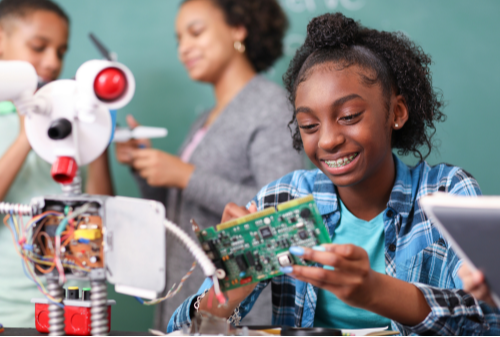Preparing for a degree in engineering while you're in high school can make you a more competitive candidate for college and increase your chances of being accepted into universities. It helps you earn the grades needed for a college degree and equips you for an engineering job, laying a foundation for a successful career. Proper preparation can also help you discover your passions and determine whether engineering is the right path for you. Here are some activities that are suitable for students considering studying engineering:
Suitable Activities for Potential Engineering Students

Academic and Research-Based Activities for High School Students
According to the National Survey of Student Engagement, students involved in academic clubs are 20% more likely to experience higher levels of academic challenge and active learning. Developing your knowledge of math and science is crucial for engineering students. Engineers typically excel in these areas, and taking advanced classes in physics, chemistry, calculus, and statistics can enhance your proficiency. Additionally, participating in research projects and internships provides hands-on experience, deepens your understanding of engineering principles, and significantly enhances employability.
Hands-On Practical Activities for Potential Engineering Students
Getting an internship is an excellent way to apply the math and science skills you've developed and explore different engineering specializations. An internship offers practical experience in engineering and enables you to build a professional network, which can be valuable for letters of recommendation and job opportunities. Volunteering in technical roles or shadowing a professional engineer can also provide insight into the day-to-day responsibilities of an engineer, helping you make informed decisions about your career path.
Professional Development Activities
Networking with industry professionals can open doors to mentorship, internships, and future job opportunities. Attending career fairs and industry conferences provides insights into job markets and emerging trends, facilitating informed educational and career decisions. According to the National Association of Colleges and Employers (NACE), students who attend career fairs are 50% more likely to secure job offers before graduation. Joining professional engineering organizations provides access to resources, certifications, and a supportive community. Engaging in online courses and certifications also allows you to acquire new skills and stay competitive in a rapidly evolving field.
Extracurricular and Recreational Activities to Further Boost Academic Profile
Participating in sports and fitness programs contributes to physical health and fosters teamwork and discipline. A study by the Journal of Sports Science & Medicine found that regular physical activity can improve cognitive function and academic performance by up to 15%. These activities not only help boost your academic profile by demonstrating a diverse range of skills and interests but are also highly valued by admissions officers, who seek well-rounded and engaged students. Joining arts and creative clubs provides an outlet for creativity and develops complementary skills alongside technical abilities. Engaging in community service and outreach initiatives promotes empathy and leadership skills, positively impacting both personal growth and societal contributions. Exploring hobbies and personal interests ensures a balanced lifestyle, reducing stress and enhancing overall well-being.
When applying to colleges, it's essential to demonstrate a well-rounded profile that includes a variety of interests and experiences. Engaging in diverse activities not only enhances your resume but also fosters a broader skill set and a balanced personality. For engineering students, this balance between academic rigor and extracurricular involvement is crucial for personal and professional growth.


